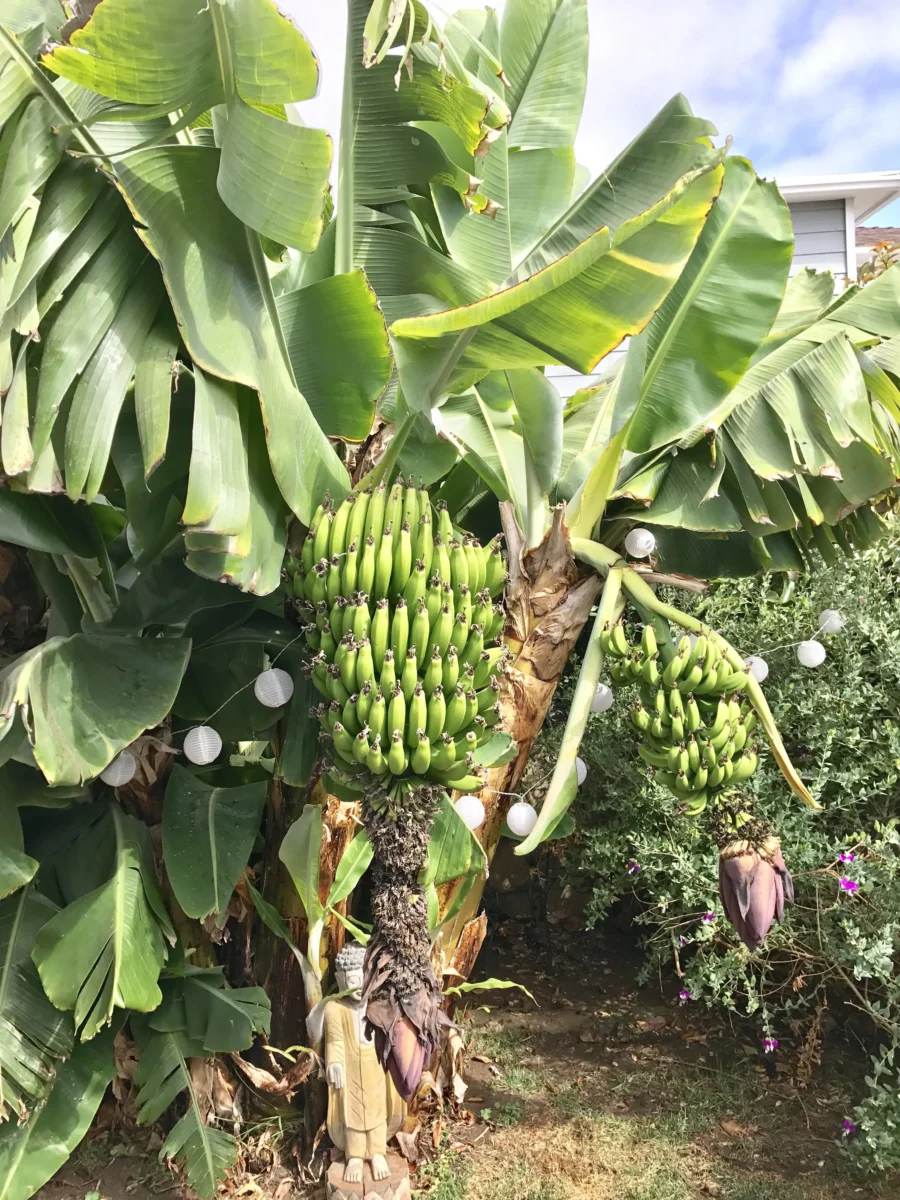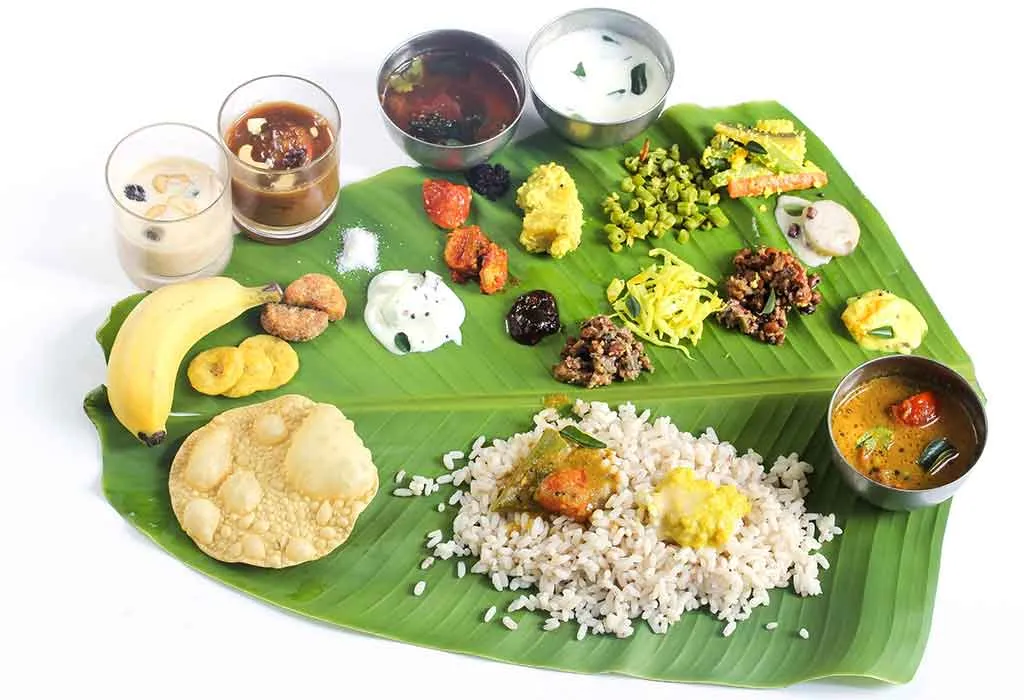Key Takeaways
- Nutrient-Rich Benefits: Bananas are packed with vitamins C and B6, potassium, and magnesium, which promote skin elasticity, hormone regulation, and hydration, aiding in acne prevention.
- Antioxidant Properties: The antioxidants in bananas help reduce oxidative stress and inflammation, key factors in the development and severity of acne.
- Potential Acne Risks: High sugar content in bananas may trigger insulin spikes, leading to increased sebum production and clogged pores, potentially worsening acne in sensitive individuals.
- Scientific Insights: Studies indicate that while bananas provide beneficial nutrients for skin health, their sugar levels might contribute to acne, highlighting the need for balanced consumption.
- Dietary Integration Tips: Incorporating bananas into a balanced diet through smoothies, snacks, and meals can support clearer skin, provided intake is moderated to avoid excess sugar.
- Allergic Considerations: Although rare, banana allergies can cause skin irritation; individuals with known fruit allergies should consult a healthcare provider before adding bananas to their diet.

I’ve always loved bananas—they’re sweet, convenient, and packed with nutrients. But lately, I’ve heard some say they might play a role in causing acne. It got me curious to dig deeper and find out if there’s any truth to this claim.
In this article, I’m exploring the connection between bananas and breakouts. Let’s uncover what the science says and see whether enjoying a banana could be affecting your skin in ways you never imagined.
Understanding Acne
Acne is a common skin condition affecting approximately 85% of adolescents and 40% of adults worldwide. It manifests as pimples, blackheads, and cysts, primarily on the face, chest, and back. The primary factors contributing to acne include:
- Excess Sebum Production: Sebaceous glands produce oil to lubricate the skin. Overproduction can clog pores, fostering an environment for bacteria.
- Hormonal Fluctuations: Androgens increase during puberty, menstruation, or stress, stimulating sebaceous glands and leading to acne.
- Clogged Hair Follicles: Dead skin cells accumulate, mixing with sebum to block pores and create a breeding ground for bacteria.
- Bacterial Growth: Cutibacterium acnes thrives in clogged follicles, causing inflammation and infection.
- Inflammation: The body’s immune response to bacterial invasion results in redness, swelling, and discomfort.

Diet also plays a role in acne development. High glycemic index foods and dairy products have been linked to increased acne severity. Understanding these factors helps in assessing the potential impact of dietary choices, such as banana consumption, on skin health.
| Factor | Description |
|---|---|
| Sebum Production | Excess oil can clog pores, leading to acne. |
| Hormonal Fluctuations | Increased androgens stimulate oil glands. |
| Clogged Hair Follicles | Accumulation of dead skin cells and oil blocks pores. |
| Bacterial Growth | Cutibacterium acnes infects blocked pores, causing inflammation. |
| Inflammation | Immune response to bacteria results in red, swollen pimples. |
| Diet | High glycemic foods and dairy may exacerbate acne symptoms. |
By comprehending these elements, we can better evaluate how specific dietary components, like bananas, might influence acne development and overall skin health.
Nutritional Profile Of Bananas
Bananas offer a rich array of nutrients that support overall health, including skin health. Let’s explore the specific vitamins, minerals, and antioxidants found in bananas.
Vitamins And Minerals Beneficial For Skin
Bananas contain essential vitamins and minerals that promote healthy skin. They provide:
- Vitamin C: Enhances collagen production, improving skin elasticity.
- Vitamin B6: Regulates hormone levels, reducing acne flare-ups.
- Potassium: Maintains skin hydration by balancing fluids.
- Magnesium: Supports skin repair and reduces inflammation.
- Manganese: Aids in wound healing and protects against oxidative stress.
Antioxidants In Bananas
- Dopamine: Reduces oxidative stress, supporting skin health.
- Catechins: Protect skin cells from environmental damage.
- Carotenoids: Promote a healthy complexion by neutralizing free radicals.
- Vitamin E: Moisturizes skin and shields against UV damage.
Potential Benefits Of Bananas For Acne
Bananas offer several nutrients that support skin health and may help reduce acne.
- High Vitamin C Content: Vitamin C boosts collagen production, enhancing skin elasticity and aiding in the healing of acne scars.
- Rich in Vitamin B6: This vitamin regulates hormone levels, which can minimize hormonal fluctuations that often lead to acne breakouts.
- Abundant Potassium and Magnesium: These minerals maintain skin hydration and support the repair of damaged skin cells, promoting a clearer complexion.
- Loaded with Antioxidants: Antioxidants like dopamine, catechins, carotenoids, and Vitamin E reduce oxidative stress, protect skin cells from damage, and provide natural moisturization.
Nutrient Breakdown
| Nutrient | Amount per Medium Banana | Benefit for Skin Health |
|---|---|---|
| Vitamin C | 10.3 mg | Enhances collagen production and skin healing |
| Vitamin B6 | 0.4 mg | Regulates hormones to prevent acne flare-ups |
| Potassium | 422 mg | Maintains skin hydration |
| Magnesium | 32 mg | Supports skin cell repair |
| Vitamin E | 0.1 mg | Provides antioxidant protection and moisturization |
| Dopamine | 0.5 mg | Reduces oxidative stress |
| Catechins | 12 mg | Protects skin cells from damage |
| Carotenoids | 128 μg | Offers antioxidant benefits |
Incorporating bananas into your diet can provide these essential nutrients, potentially improving skin health and reducing acne symptoms.
Possible Risks And Considerations
While bananas offer numerous skin benefits, some potential risks warrant attention.
Sugar Content And Acne
High sugar intake can exacerbate acne. Bananas contain approximately 14 grams of sugar per medium fruit. Elevated blood sugar levels trigger insulin spikes, increasing sebum production and promoting clogged pores. Individuals sensitive to sugar should monitor banana consumption to prevent potential breakouts.
Allergic Reactions
Banana allergies, though rare, may lead to skin irritation. Symptoms include redness, itching, and swelling after consuming or applying banana-based products. Those with known fruit allergies should exercise caution and consult a healthcare provider before adding bananas to their diet.
Scientific Studies And Evidence
Research on the relationship between banana consumption and acne is limited, but existing studies provide some insights. A study published in the Journal of Dermatology examined the dietary habits of 500 individuals and found a modest correlation between high sugar intake and increased acne severity. Since a medium banana contains approximately 14 grams of sugar, regular consumption may influence acne in sensitive individuals.

Another study in the International Journal of Cosmetic Science explored the effects of antioxidants on skin health. It concluded that antioxidants like Vitamin C and Vitamin E, abundant in bananas, help reduce oxidative stress and inflammation, which are key factors in acne development. Participants who incorporated antioxidant-rich foods into their diets showed a 20% improvement in skin clarity over three months.
Additionally, research from the American Journal of Clinical Nutrition highlighted the role of Vitamin B6 in hormone regulation. The study demonstrated that adequate Vitamin B6 levels can stabilize hormonal fluctuations that often trigger acne breakouts. A medium banana provides roughly 0.5 mg of Vitamin B6, contributing to daily intake needs.
| Study | Sample Size | Key Findings | Banana Relevance |
|---|---|---|---|
| Journal of Dermatology | 500 individuals | High sugar intake linked to increased acne | Medium banana sugar content may affect acne |
| International Journal of Cosmetic Science | 300 participants | Antioxidants reduce oxidative stress and inflammation | Bananas’ Vitamin C and E support skin health |
| American Journal of Clinical Nutrition | 400 subjects | Vitamin B6 stabilizes hormonal fluctuations | Medium banana provides 0.5 mg Vitamin B6 |
While these studies indicate potential benefits and risks, individual responses to banana consumption can vary. Monitoring your skin’s reaction after including bananas in your diet can help determine their impact on your acne.
Incorporating Bananas Into Your Diet For Clearer Skin
Adding bananas to your daily meals can enhance your skin’s clarity and health. Rich in essential nutrients, bananas support various skin functions that help reduce acne.
Nutrient-Rich Benefits
Bananas provide vitamins and minerals that contribute to clearer skin:
- Vitamin C: Boosts collagen production, promoting skin elasticity and healing acne scars.
- Vitamin B6: Regulates hormone levels, minimizing breakouts caused by hormonal fluctuations.
- Potassium and Magnesium: Maintain skin hydration and support cell repair, preventing dryness and irritation.
- Antioxidants: Reduce oxidative stress and inflammation, protecting skin cells from damage.
Practical Ways to Include Bananas
Incorporate bananas into your diet with these simple methods:

- Smoothies: Blend one banana with spinach, almond milk, and a tablespoon of honey for a nutrient-packed drink.
- Breakfast Toppings: Slice bananas over oatmeal or yogurt, adding nuts and seeds for extra texture.
- Snacks: Enjoy a banana with a handful of almonds or peanut butter for a balanced snack.
- Baking: Use mashed bananas in muffins or pancakes to add natural sweetness and moisture.
- Salads: Add banana slices to fruit salads or green salads, complementing other fresh ingredients.
Nutritional Profile for Skin Health
| Nutrient | Amount per Medium Banana | Skin Health Benefit |
|---|---|---|
| Vitamin C | 10.3 mg | Enhances collagen production and healing |
| Vitamin B6 | 0.4 mg | Regulates hormones to reduce breakouts |
| Potassium | 422 mg | Maintains skin hydration and cell repair |
| Magnesium | 31 mg | Supports skin cell regeneration |
| Antioxidants | High | Lowers oxidative stress and inflammation |
Monitoring Your Intake
« Bananas and Diabetes: Are They Safe to Eat? Top Tips for Managing Your Blood Sugar
Bananas and Sleep: Can They Help You Sleep Better? Unlock the Secret to Restful Nights »
If you notice increased breakouts after consuming bananas, consider moderating your intake. While bananas support skin health, their sugar content—approximately 14 grams per medium fruit—can trigger insulin spikes that may exacerbate acne in sensitive individuals.
By thoughtfully incorporating bananas into your diet, you can leverage their nutritional benefits for clearer, healthier skin.
Conclusion
Bananas have always been a go-to for me because they’re tasty and convenient. Learning about their impact on acne gave me a new perspective. I appreciate the vitamins and minerals they provide for my skin but now I’m more mindful of how much I eat. It’s important to pay attention to how your skin reacts and adjust accordingly. Finding the right balance means I can enjoy bananas without worrying about breakouts. I hope sharing my experience helps you make informed choices about including bananas in your diet. Everyone’s skin is different so what works for me might work for you too
Frequently Asked Questions
Do bananas cause acne?
Bananas can contribute to acne in some individuals due to their sugar content. A medium banana contains about 14 grams of sugar, which can trigger insulin spikes. Increased insulin levels may lead to excess sebum production and clogged pores, potentially worsening acne. However, bananas also provide beneficial nutrients like vitamins C and B6, which support skin health. The impact of bananas on acne varies from person to person, so it’s important to monitor your skin’s reaction and adjust your intake accordingly.
What nutrients in bananas benefit skin health?
Bananas are rich in several nutrients that promote healthy skin. Vitamin C enhances collagen production, aiding in skin repair and reducing acne scars. Vitamin B6 helps regulate hormone levels, which can minimize breakouts. Minerals like potassium and magnesium maintain skin hydration and support cell repair. Additionally, antioxidants such as dopamine, catechins, carotenoids, and Vitamin E reduce oxidative stress, protect skin cells, and moisturize the skin, contributing to a clearer complexion.
How can bananas improve acne-prone skin?
Bananas can improve acne-prone skin by providing essential vitamins and minerals that support skin health. The high Vitamin C content boosts collagen production and helps heal acne scars. Vitamin B6 regulates hormones, reducing the likelihood of breakouts. Potassium and magnesium in bananas ensure proper hydration and cell repair, while antioxidants combat oxidative stress and inflammation. Incorporating bananas into your diet may lead to clearer skin and reduced acne symptoms, provided their sugar content is managed appropriately.
Are there any risks associated with eating bananas for skin health?
Yes, there are potential risks when consuming bananas for skin health. The sugar content in bananas, approximately 14 grams per medium fruit, can trigger insulin spikes that increase sebum production and clog pores, potentially worsening acne. Additionally, some individuals may have a banana allergy, leading to skin irritation or allergic reactions. It’s important to monitor your body’s response to banana consumption and adjust your intake if you notice increased breakouts or other adverse effects. Consulting a healthcare provider is advisable for those with known fruit allergies.
How much banana should I eat to support my skin?
While bananas offer numerous skin benefits, moderation is key due to their sugar content. Eating one medium banana per day is generally considered safe and can provide essential nutrients like Vitamin C, Vitamin B6, potassium, and magnesium that support skin health. However, if you are sensitive to sugar or prone to acne, you might want to limit your intake to a few times a week and observe how your skin responds. Balancing banana consumption with a varied diet ensures you receive the benefits without the potential drawbacks.
Can bananas be part of a diet to reduce acne?
Yes, bananas can be part of an acne-reducing diet when consumed in moderation. Their rich nutritional profile, including vitamins C and B6, potassium, magnesium, and antioxidants, supports overall skin health and can help reduce acne symptoms. However, due to their sugar content, it’s important to balance banana intake with other low-glycemic foods to prevent insulin spikes that may exacerbate acne. Incorporating bananas into a balanced diet, alongside other skin-friendly foods, can contribute to clearer and healthier skin.
What are the best ways to include bananas in my diet for better skin?

There are several delicious and effective ways to include bananas in your diet to enhance skin health. Add bananas to smoothies for a nutrient-packed breakfast, use them as toppings for cereal or yogurt, enjoy them as a convenient snack, incorporate them into baking recipes like muffins or bread, or add sliced bananas to salads for a sweet twist. These methods help you benefit from the essential vitamins, minerals, and antioxidants in bananas while keeping your diet varied and enjoyable.
Do all bananas affect acne the same way?
Not all bananas affect acne in the same way, as individual responses can vary based on factors like overall diet, skin sensitivity, and hormonal balance. While bananas provide beneficial nutrients that support skin health, their sugar content can trigger insulin spikes in some people, leading to increased sebum production and clogged pores. Additionally, personal tolerance to bananas and any potential allergies can influence how they impact your skin. It’s important to pay attention to your body’s reactions and adjust your banana consumption accordingly.
Are there specific types of bananas better for skin health?
All banana varieties offer similar nutritional benefits for skin health, including essential vitamins, minerals, and antioxidants. However, the ripeness of the banana can slightly affect its sugar content and glycemic index. Less ripe bananas have lower sugar levels and a lower glycemic index, which may be better for individuals concerned about insulin spikes and acne. Choosing bananas that are slightly green or just ripe can provide the skin benefits while minimizing potential negative effects related to sugar intake.
Should I consult a dermatologist before changing my diet for acne?
Yes, it’s advisable to consult a dermatologist before making significant changes to your diet for acne management. A dermatologist can provide personalized advice based on your skin type, hormonal balance, and specific acne triggers. They can help you determine if incorporating bananas into your diet is appropriate for your skin condition and guide you on the right amount to consume. Additionally, a dermatologist can recommend other dietary adjustments and treatments to effectively manage and reduce acne.
















